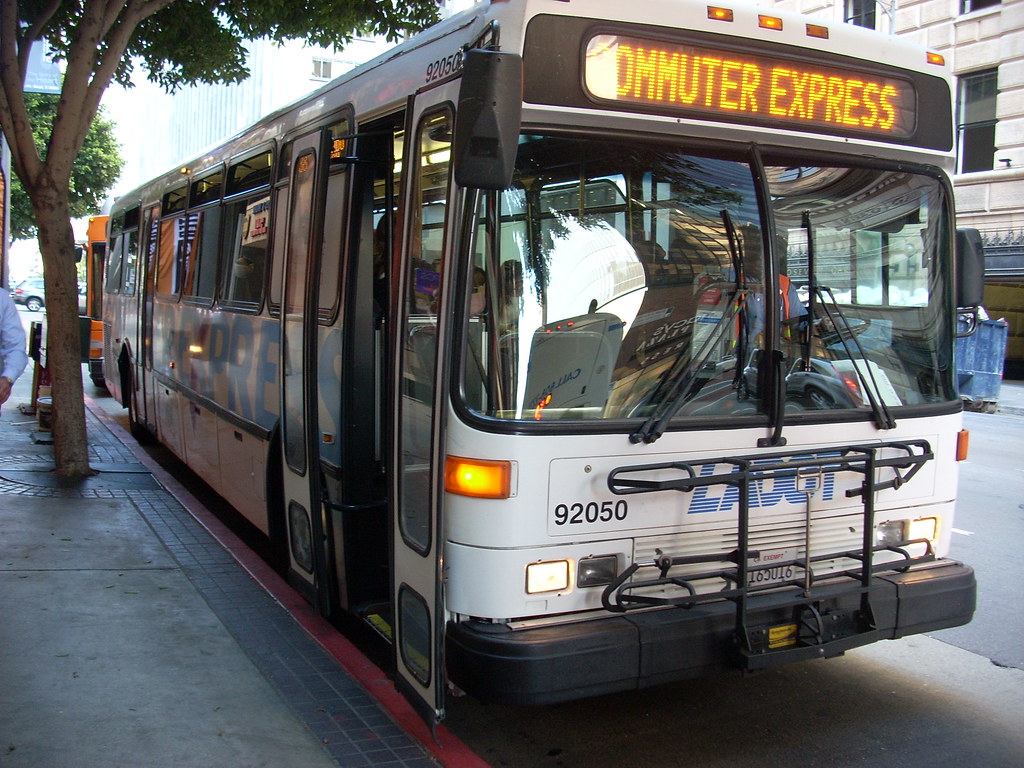Los Angeles has a geometry problem. Multiply the space that even the smallest car occupies by the number of Angelenos who need to get from A-B and you& #39;ll see that there& #39;s no way that the city is compatible with private vehicles.
1/
1/
Building more highways means clearing more live- and work-space, which pushes everything apart, which makes journeys longer, which requires building more highways...
Sadly for advocates of individual transit solutions, geometry has a socialist bias.
#arcology-politics">https://pluralistic.net/2021/03/21/ex-urbe/ #arcology-politics
2/">https://pluralistic.net/2021/03/2...
Sadly for advocates of individual transit solutions, geometry has a socialist bias.
#arcology-politics">https://pluralistic.net/2021/03/21/ex-urbe/ #arcology-politics
2/">https://pluralistic.net/2021/03/2...
(and no, you can& #39;t fix this by putting private vehicles in tunnels, no matter how fast the tunnels are - these are just shitty, inefficient subways that let plutes escape the company of their laboring neighbors during their morning commutes)
3/
3/
Los Angeles actually has one of the world& #39;s most extensive public transit systems, but it& #39;s not a system that most people use voluntarily. While the subways are fast and efficient, they& #39;re not nearly extensive enough.
4/
4/
The bus system is VERY extensive but it& #39;s slow and meandering and lacks the dedicated lanes that the evidence tells us we need if we& #39;re going to seriously shift people out of low-capacity private cars and into efficient, speedy buses:
https://memex.craphound.com/2015/12/03/urban-transport-without-the-hot-air-confusing-the-issue-with-relevant-facts/
5/">https://memex.craphound.com/2015/12/0...
https://memex.craphound.com/2015/12/03/urban-transport-without-the-hot-air-confusing-the-issue-with-relevant-facts/
5/">https://memex.craphound.com/2015/12/0...
As a result, LA& #39;s transit overwhelming serves low-income Angelenos, who don& #39;t merely suffer disproportionately from the slow service, but who also face significant drain on their budgets from the $1.75 fare (about $1200/year for regular riders).
6/
6/
The LA system isn& #39;t reliant on these fares, either: only 4% of the system& #39;s budget comes from fares, and 20% of the money collected in fares is spent enforcing fare-collection (!).
7/
7/
All of this led to activists like @BusRidersUnion to advocate for abolishing fares altogether, and now the Los Angeles County Metropolitan Transportation Authority has published a plan to create "the largest free mass transit system in the world."
https://thesource.metro.net/2021/02/18/fareless-system-initiative-gives-update-to-metro-board-on-potential-pilot-program/
8/">https://thesource.metro.net/2021/02/1...
https://thesource.metro.net/2021/02/18/fareless-system-initiative-gives-update-to-metro-board-on-potential-pilot-program/
8/">https://thesource.metro.net/2021/02/1...
As welcome as that plan is, it& #39;s far from perfect. It calls for phasing fare-waivers between now and 2023, with free rides for students (from kindergarten to community college) this Aug, expanding to riders earning less than $35k in Jan 2022.
https://prospect.org/infrastructure/transportation/los-angeles-turns-toward-free-fares/
9/">https://prospect.org/infrastru...
https://prospect.org/infrastructure/transportation/los-angeles-turns-toward-free-fares/
9/">https://prospect.org/infrastru...
The plan& #39;s means-testing might undo it, by excluding people who need it the most: for example, homeless people with no income, no W-2 and no way to prove they qualify; or low-income workers whose lack of English fluency and digital literacy freezes them out of the system.
10/
10/
These aren& #39;t hypothetical risks - they& #39;re what& #39;s already happening in the Metro& #39;s existing pandemic low-income fare waivers. There& #39;s no reason to think the problems will go away when these emergency programs are institutionalized and made permanent.
11/
11/
Fare waivers are the right thing to do, both as a matter of transitioning LA sustainable transit and to end the racially biased fare-policing practices in the system (20% of Metro riders are Black, but 50% of fare-evasion citations go to Black riders).
12/
12/
It& #39;ll also improve the working lives of drivers - 40% of driver assaults stem from fare disputes.
When systems like Kansas City& #39;s eliminated fares, they saw increased access for poor people, survivors of domestic violence and veterans.
13/
When systems like Kansas City& #39;s eliminated fares, they saw increased access for poor people, survivors of domestic violence and veterans.
13/
Feared increases in crime on the system never materialized - nor did the predicted de facto conversion of the system into a homeless shelter.
Transit is a public good, and it is good for the whole public.
14/
Transit is a public good, and it is good for the whole public.
14/
Image:
LA WAD
https://www.flickr.com/photos/hercwad/2827792472
CC">https://www.flickr.com/photos/he... BY-NC-SA:
https://creativecommons.org/licenses/by-nc-sa/2.0/
eof/">https://creativecommons.org/licenses/...
LA WAD
https://www.flickr.com/photos/hercwad/2827792472
CC">https://www.flickr.com/photos/he... BY-NC-SA:
https://creativecommons.org/licenses/by-nc-sa/2.0/
eof/">https://creativecommons.org/licenses/...
ETA - If you& #39;d like an unrolled version of this thread to read or share, here& #39;s a link to it on http://pluralistic.net"> http://pluralistic.net , my surveillance-free, ad-free, tracker-free blog:
#get-on-the-bus">https://pluralistic.net/2021/05/10/comrade-ustr/ #get-on-the-bus">https://pluralistic.net/2021/05/1...
#get-on-the-bus">https://pluralistic.net/2021/05/10/comrade-ustr/ #get-on-the-bus">https://pluralistic.net/2021/05/1...

 Read on Twitter
Read on Twitter


